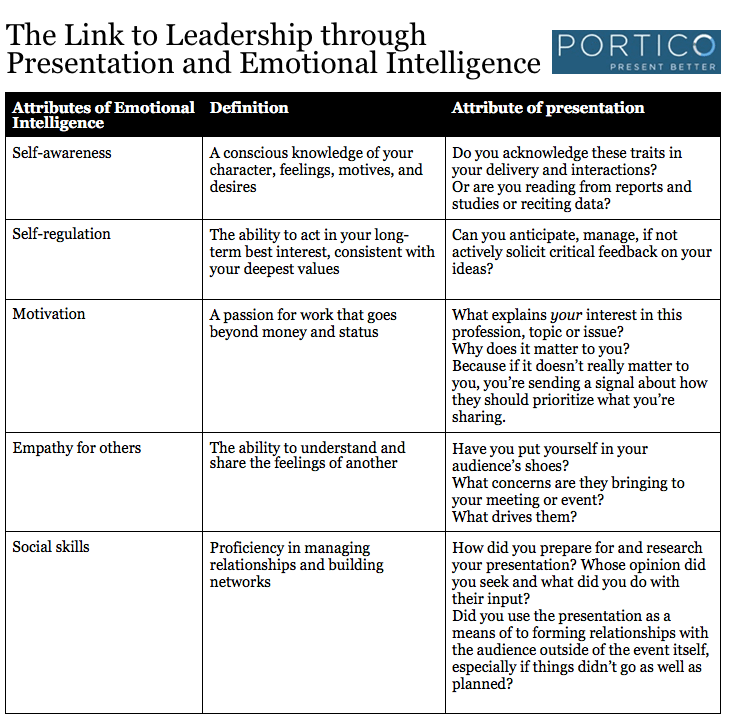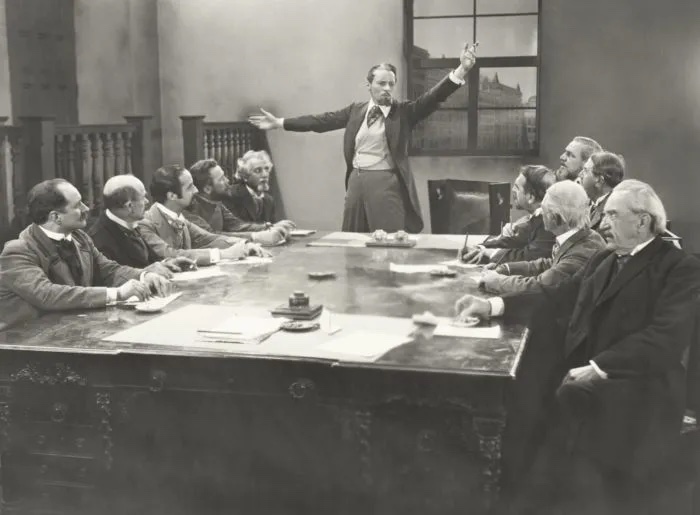We ask our clients what having better presentation skills might mean for their career.
“I could spend less time trying to advocate for my ideas and more time implementing them.”
“I could bring in more business.”
“I would be perceived as more of a leader than I am now.”
The upsides are clear. Yet when it comes to diagnosing the problem they have with presentations, they talk about the need for better slide design or to develop more concise and compelling messaging. While design and messaging are important, we’re missing the real link between effective presenting and leadership.
The missing link is emotion. Giving a presentation setting offers a rare opportunity to demonstrate your emotional intelligence, one of the most important traits we look for in our leaders.
Before you dismiss this linkage as “fluffy,” allow me to explain.
Think about the best presenters you’ve experienced. We ask this question constantly so that we build our archive of examples and constantly learn from the best presenters. When people tell us why the presentation was great, they explain it in emotional terms:
The speaker was charismatic . . . confident . . . relaxed and engaging . . . passionate about their cause.
Chances are you do too. Rarely do we express admiration for the curvature of Calibri 24 point font on a white background. (To be fair, there are presentations that qualify as works of art. But slides are in service and support of you, the speaker.)
Emotions create an experience.Neuroeconomist Paul Zak has mapped the impact of stories on our physiology. As audience members, we react through changes in levels of cortisol (when bad things happen) and oxytocin (when problems are resolved), which makes the messages themselves more memorable.
Injecting a modicum of emotion and revealing more of your personality distinguishes you as a leader. Emotional Intelligence has long been considered one of the most critical components of leadership.
According to Rutgers psychologist Daniel Goleman, the key attributes of emotional intelligence are listed below, and include the definition and the attribute to parts of a presentation, where the link to leadership becomes clear.




